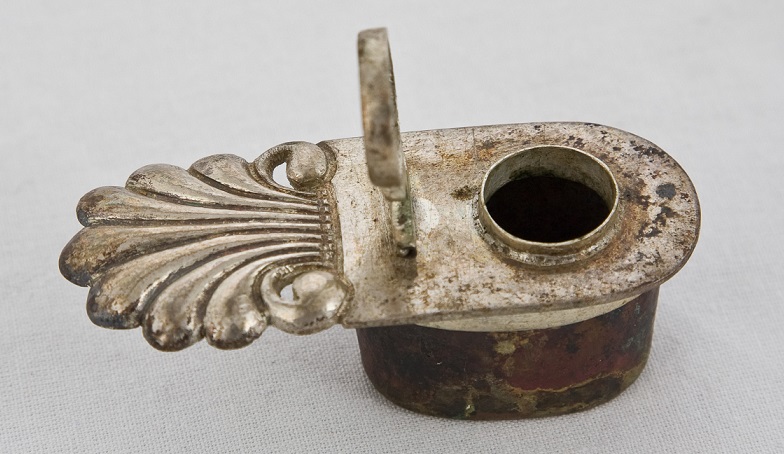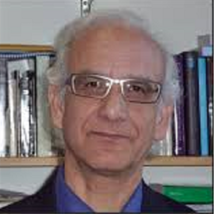
Copper ink well with silver decorative top belonging to Bahá’u’lláh.
Photo Credit: © Bahá’í International Community
O Nightingales!An Ode by Bahá’u’lláh
Provisional Translation by Nader Saiedi and Anthony A. Lee
An Ode by Bahá’u’lláh
Provisional Translation by Nader Saiedi and Anthony A. Lee
Nightingales! The season of flowers and trees has come.
Mystics! What was hidden now stands for all to see.
Lovers! Look! Your Beloved just unveiled her face.
Seekers! Look now on the One you had longed to see.
Beauty has dawned, the lights of God shine bright.
Flee the prison of your self—Rise up and be free.
That veiled Beloved, Ruler of the highest realm,
now walks here, as Joseph did, through square and alley.
She was hidden ‘neath the Mount of infinity.
She was there concealed from us for eternity.
Look! She has dawned now, like the morning sun,
shedding her light from mountain to prairie.
For the fragrance of Her musk-laden locks,
for the sweetness, the sugar of Her lips,
Her lovers now will roam the marketplace
seeking the door of the perfumery.
Wine jars overflow, reason is struck dumb.
Mortal poison turns to balm—the Cup of God is heavy.
Prayer beads for infidels, hypocrisy no more.
The men devoted to Her love drink in the winery.
False piety in hiding now, deceit is so ashamed.
Her slender body floats like a bird over land and sea.
The hidden Treasure manifest,
now the phoenix of soul flies free.
All mysteries have been unveiled,
and all the veils burned utterly.
The nightingale leaps to the rose.
The lover dives into love’s sea.
The caged parrot returns to the forest.
Strangers are friends: and strangers friends will be.
Commentary:
The date of this poem is unknown, though it seems likely that it was written before 1863, either on Bahá’u’lláh’s way from Tehran to Baghdad, or in the last years of His stay in Baghdad, prior to His public declaration of His mission in the Garden of Ridvan. Both in its poetic beauty and the richness of its symbolism, this poem is one of the great works of Persian mystical poetry. Yet Bahá’u’lláh’s poem is not just another poem in the large body of Sufi poems celebrating the spiritual ecstasy of the mystic as he or she achieves fana (annihilation of self) or the presence of Spirit. The poem distinguishes itself from such poems by its allusion to Bahá’u’lláh’s historical claims to be the Manifestation of God. In the poem, the Spirit of God, embodied as a woman, is not a metaphor for an inner experience, but, rather, for the intervention of God in human history through the person of His Manifestation, whose purpose is not only to bring individuals into ecstatic communion with Him, but also to renovate the social order. In the last few lines of the poem, the nightingale achieves union with the rose, the parrot arrives home, strangers become friends, and the social order is renewed.

